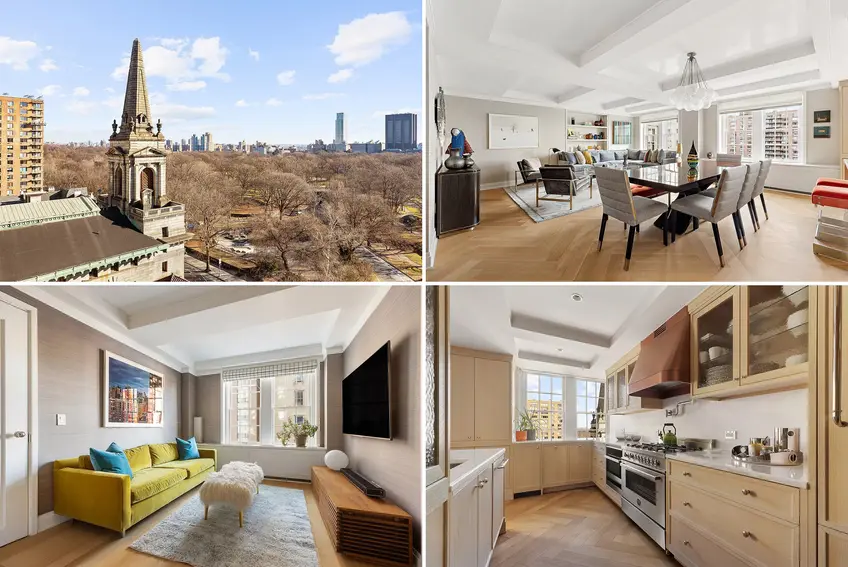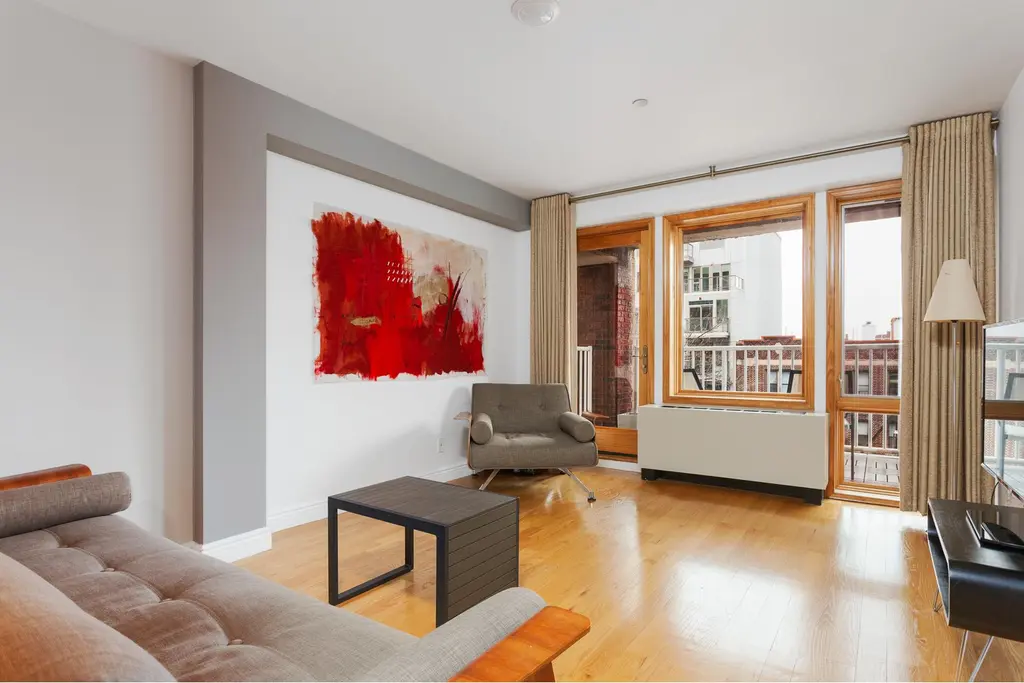 Brooklyn condo offers abundant light, thoughtful layout, and low common charges (2025 Ocean Avenue, #2B - Corcoran Group)
Brooklyn condo offers abundant light, thoughtful layout, and low common charges (2025 Ocean Avenue, #2B - Corcoran Group)
Closing costs on condos are always higher than on similarly priced coops. The most significant factor is the mortgage recording tax, which is 1.925% on New York City properties priced over $500,000. But the mortgage recording tax isn’t the only additional cost condo buyers face at closing. Among other costs, condo buyers, especially those closing on units in new developments, are often also expected to contribute to the condo’s reserve fund or working capital fund. This article drills down on the purpose of condo reserve funds, how much buyers are typically expected to contribute, and why or why not to negotiate these closing costs.
In this article:
What is a condo reserve fund?
All condos and coops have a reserve fund. These funds are used to cover expenditures not covered by the building’s operating fund. In most cases, operating funds (covered by residents’ monthly fees) cover recurring expenses such as utility fees, building staff salaries, and insurance. Reserve funds cover occasional expenses, including sidewalk repairs, major landscaping projects, and, most importantly, emergency expenses (e.g., boiler and HVAC replacements).Unsurprisingly, the longer a building has been in existence, the more likely it is to have a substantial reserve fund. If a building is making smart decisions about how to spend and invest its money, over time, it will ideally build up a reserve fund substantial enough to cover major expenses, including capital projects such as façade repairs. It goes without saying that new developments don’t have the benefit of having had years to build up a reserve fund and, as a result, typically charge an additional fee at closing to help start a reserve fund to offset the cost of future occasional expenditures.
The Olmsted, #17Y (Compass)
How much is a typical contribution to a condo reserve fund?
Reserve fund contributions vary from development to development, but are generally equivalent to two months of fees.For example, the offering plan for One Essex Crossing states, “Each Purchaser of a Residential Unit will be required to make a non-refundable contribution to the Working Capital Fund of the Condominium at Closing, in an amount equal to 2 months’ Common Charges with respect to the Residential Unit based on the Condominium budget in effect as of the Closing Date.” Since monthly project common charges are relatively low at One Essex Crossing (at the time the offering plan was filed, they were just $1,235.21 per month), the reserve fund contribution was originally under $2,500.
In buildings with higher fees, buyers also encounter higher reserve fund costs at closing. For example, the offering plan for The Bellemont, located at 1165 Madison Avenue, also requires buyers to contribute two months of fees to the reserve fund, but depending on the size of one’s unit, this would add anywhere from just over $8,000 to $24,000 to one’s closing cost.
Are condo reserve fund fees negotiable?
Like most other closing costs, reserve funds are negotiable. However, since they are typically only equivalent to two months of fees, most buyers don’t attempt to negotiate them and opt instead to negotiate bigger ticket closing costs, such as the transfer taxes.
360 Central Park West, #12E
$4,000,000 (-9%)
Central Park West | Condominium | 3 Bedrooms, 2.5 Baths | 1,923 ft2
Monthly Common Charges: $2,390
360 Central Park West, #12E (Brown Harris Stevens Residential Sales LLC)
Do the same fees apply to resale condo purchases?
Reserve fund fees are not as common on resale condo sales but may apply in some instances. In the offering plan for One Essex Crossing, for example, it clearly states, “The payment of the Working Capital Fund shall be required of all Purchasers of Residential Units, whether purchased from Sponsor or purchased from a Residential Unit Owner on a resale.” If you’re considering purchasing a resale condo and want to know if your closing costs will include a contribution to the condo’s reserve fund, search for the condo’s offering plans on the Real Estate Finance Bureau website. Once you have downloaded the offering plan, search for “reserve fund.” If reserve fund fees apply to sponsor and resale unit sales, it will be stated in the offering plan (or in one of the subsequent amendments to the plan, which you can also find on the Real Estate Finance Bureau website).
Would you like to tour any of these properties?
Just complete the info below.
Or call us at (212) 755-5544
While reserve fund costs may be one of the smaller fees you’ll be expected to pay when closing on a condo, especially a new construction condo, it is still important to factor in this additional fee when preparing to close.
Active Condo Listings with Very Low Monthlies
The Lausanne, #7E
$699,000
Turtle Bay/United Nations | Condominium | 1 Bedroom, 1 Bath
Monthly Common Charges: $611

The Lausanne, #7E (Brown Harris Stevens Residential Sales LLC)
Laureate, #8D
$5,750,000 (-39.5%)
Broadway Corridor | Condominium | 4 Bedrooms, 3.5 Baths | 2,821 ft2
Monthly Common Charges: $3,811

Laureate, #8D (Nest Seekers LLC)
2025 Ocean Avenue, #2C
$599,000
Midwood | Condominium | 1 Bedroom, 1 Bath
Monthly Common Charges: $137
2025 Ocean Avenue, #2C (Corcoran Group)
2654 East 18th Street, #2D
$460,000
Sheepshead Bay | Condominium | 1 Bedroom, 1 Bath | 518 ft2
Monthly Common Charges: $196

2654 East 18th Street, #2D (Compass)
The Rogers Residences, #2D
$540,000
Prospect Lefferts Gardens | Condominium | Studio, 1 Bath | 540 ft2
Monthly Common Charges: $217
The Rogers Residences, #2D (Corcoran Group)
Annabelle, #2B
$535,000
Bushwick | Condominium | 1 Bedroom, 1 Bath | 571 ft2
Monthly Common Charges: $339

Annabelle, #2B (REAVIS PARTNERS LLC)
122 Palmetto Street, #2B
$574,995 (-4.2%)
Bushwick | Condominium | 1 Bedroom, 1 Bath | 750 ft2
Monthly Common Charges: $222
122 Palmetto Street, #2B (Corcoran Group)
2140 Ocean Avenue, #5A
$450,000
Midwood | Condominium | 1 Bedroom, 1 Bath | 700 ft2
Monthly Common Charges: $227

2140 Ocean Avenue, #5A (Douglas Elliman Real Estate)
Would you like to tour any of these properties?
Just complete the info below.
Or call us at (212) 755-5544
Would you like to tour any of these properties?

Contributing Writer
Cait Etherington
Cait Etherington has over twenty years of experience working as a journalist and communications consultant. Her articles and reviews have been published in newspapers and magazines across the United States and internationally. An experienced financial writer, Cait is committed to exposing the human side of stories about contemporary business, banking and workplace relations. She also enjoys writing about trends, lifestyles and real estate in New York City where she lives with her family in a cozy apartment on the twentieth floor of a Manhattan high rise.







 6sqft delivers the latest on real estate, architecture, and design, straight from New York City.
6sqft delivers the latest on real estate, architecture, and design, straight from New York City.
